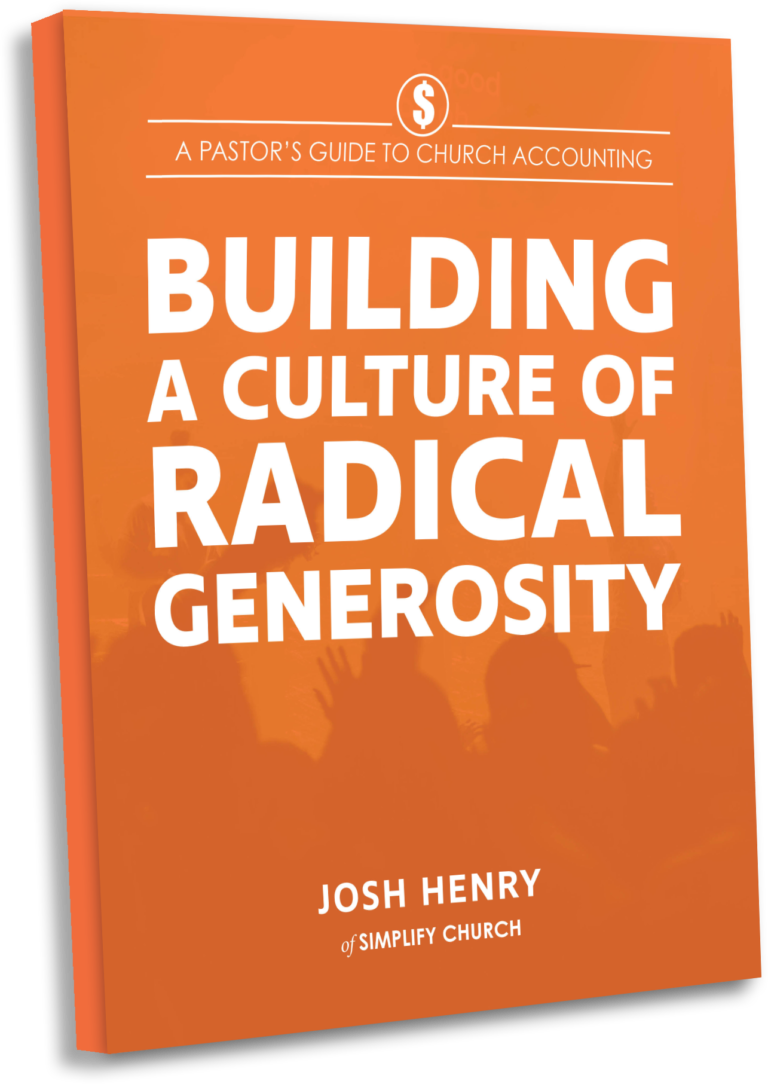Where Is Your Church Headed?
Every ship requires a compass. The compass, an instrument for navigation, indicates where the ship is headed. Without it, the vessel drifts aimlessly and often ends up off course.
Similarly, when it comes to church leadership, a clearly defined vision serves as a compass, indicating where the church is headed. Casting a vision for your church isn’t merely a buzzword or helpful leadership tactic; it’s an essential component of long-term church health and ministry effectiveness.
Unfortunately, many churches lack a clear understanding of why having a vision matters, and how to go about creating and communicating that vision. In this blog post, I want to unpack what exactly a church vision is, why having vision is so important, and provide some suggestions for where to begin when it comes to creating and communicating a vision for the future of your church.
What Exactly is a Church Vision?
Crafting a vision for your church is the process of creating a clear, inspiring and compelling statement that outlines the future direction and impact of the church. It is a process that helps align the unique gifts and resources of your organization with God’s will, and wisely plan for how to best use these resources.
The vision should both reflect who you are as an organization, and set direction for where you are headed. It serves as a guidepost to help the church make better decisions, prioritize spending, and get everyone moving in a unified direction.
Does a Church Need a Vision?
Often, I find that churches – especially smaller ones – tend to shy away from vision casting. Perhaps it’s because it takes valuable time to intentionally think about who the church is, why it exists and where it is going. Perhaps it’s because church leaders simply don’t know how to do this well. Or perhaps it’s because some churches view planning for the future as a lack of trust and reliance on God.
Let me be clear, for a church, a strategic plan is not simply a projection-based exercise. It is a process that both begins and end with prayer. Ultimately, God is the one that gives vision. But we partner with God to take action toward accomplishing that vision. Our attitude in this process should always be to seek God’s will in all things and to pray that our hearts with be aligned with His.
When we do, we make space for God to move in and through our church. Creating a vision statement, then, not only aligns our actions with God’s will, it sets our church up for long-term health. Because having a vision to guide our ministry decisions, brings meaning, it sustains ministry, it motivates those that are a part of our congregation, and it energizes the growth of our organization.
Why is Vision so Important in the Church?
Having a vision is incredibly important for the health and longevity of your church. Not only does it set direction and guide ministry decisions, it sustains ministry, motivates those that are a part of the congregation, brings meaning, and energizes the growth of your organization. Here are seven reasons why we believe vision casting is an essential part of a healthy, thriving church:
1. It Clarifies Purpose
- Every church has a purpose beyond Sunday services. Casting a clear vision helps members understand that larger purpose. Where there is a lack of clarity, people begin asking questions about what the goal of our church is. With a vision, the answer becomes clear.
2. It Unites The Congregation
With a shared vision, the congregation becomes united in purpose. Instead of multiple groups pulling in different directions, everyone moves forward with a common goal in mind, fostering unity and collective strength.
3. It Inspires Action
When the people of your church understand the vision, they are more likely to get involved. Whether it’s joining a ministry, participating in community outreach, or giving generously, a compelling vision can motivate action.
4. It Guides Decision-Making
For church leaders, countless decisions arise daily. Having a well-defined vision offers a touchstone against which all decisions can be measured. Does a potential program or initiative align with the vision? If not, it might be worth reconsidering.
5. It Helps Overcome Obstacles
Every church faces challenges. But with a clear vision, these challenges become surmountable obstacles rather than impassable roadblocks. The vision reminds everyone of the bigger picture and the higher calling.
6. It Encourages Generosity
When people have a vision to support, it both builds trust in how the leaders of the church are stewarding the resources, it gives people a reason to give. People are much more willing to support a cause, when they know what that cause is and why it matters.
7. It Facilitates Growth
As the saying goes, “If you aim at nothing, you’ll hit it every time.” A church without a vision will stagnate. But with a vision, you provide a framework for growth, both spiritually and numerically.
We go into greater detail on this topic on episode 39 of the Simplify Church podcast. Listen in your favorite podcast player, or by visiting the podcast library on our website.
What if Our Church Doesn’t Have a Vision?
Unfortunately, many churches lack a clear and compelling vision for their church. If you find yourself in this position, know that you are not alone. The good news is that developing a strategic and compelling vision does not have to be a complicated process.
Here at Simplify Church we want to give you some practical tools to help you craft a vision for your church. Next week, our Chief Simplifier, Josh Henry, will be going LIVE to share a free training to help you do just this.
You can register for the training (or to get the replay) HERE.
Are You Ready to Cast a Vision for Your Church?
Casting a vision for your church is not about crafting a catchy slogan or setting unrealistic expectations. It’s about seeking God’s heart for your community and communicating that purpose with clarity and passion. As Proverbs 29:18 says, “
By casting a vision, you’re ensuring your church doesn’t just survive but thrives for the glory of God.







